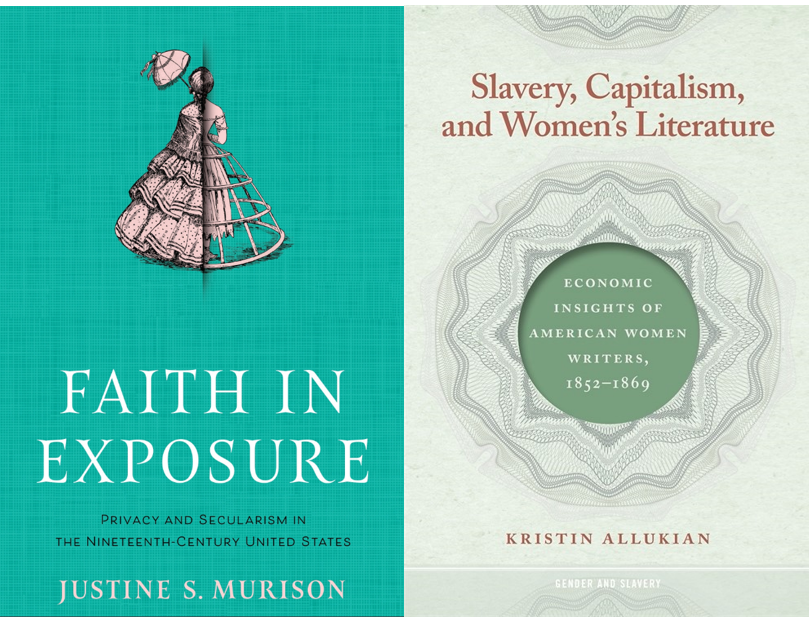For those of you traveling to Boston for the upcoming American Literature Association conference, we invite you to join the LMCS for the events listed below. We are excited and thankful to be partnering with the Louisa May Alcott Society this year.
LM Child and LM Alcott Walking Tour of Reformist Boston: Thursday, May 23
Join us for a history tour of 19th-century women’s and antislavery sites important to Alcott and Child. As you’ll see below, the tour begins at 10 am and will end at approximately 12:30, allowing time for those who wish to return to the Westin hotel for sessions that begin at 1:30. We’ll be ending in the busy Boston Common Park St. area, where you will also find several restaurant options for lunch, if you choose.
Our thanks to Melissa Pennell and Jane Sciacca for their careful planning of this walk and their wise suggestions regarding weather and tour length! They are also preparing a handout and map of the sites to give you as the walk commences.
Thurs., May 23, 10 am: Meet at/begin tour at Shaw/54th Regiment Memorial on Beacon Street (near corner of Beacon and Park). You can a) walk there (approx. a half mile) from the Westin hotel; or b) take the Green Line from Copley to Park and walk up the hill on the Common to the Shaw Memorial.
Please wear comfortable and sturdy walking shoes. Much of the pavement, including brick walks, cobblestones, etc., is uneven and, especially on Beacon Hill, makes for challenging walking at times. There is also much construction going on on Beacon Hill (both house renovations and street/sidewalk work), so we may make slight alterations in our route, depending on what is happening next week.
Because of scaffolding over some sidewalks and the narrowness of some, it would be better for you to wear rain jackets with hoods or rain hats, rather than trying to use umbrellas. While we are hoping that rain gear won’t be needed, it is May in Boston, and that can mean anything from warm and sunny to wet and chilly.
If Thursday morning weather is a steady downpour and/or thunderstorms, the walk will be canceled.
Not every stretch of the tour will have access to restroom facilities.
Thank you to Sandy P. for drafting the vast majority of this message, and to Melissa and Jane and Sandy B. for their additional assistance.
Fun will be had! We look forward to seeing many of you there,
LMA and LMC Societies
LM Child Round Table + LM Alcott and LM Child Panel
Thursday, May 23, 2019—4:30 to 5:50 pm
Session 6-E Social Justice Pedagogy Roundtable (Great Republic)
Organized by the Lydia Maria Child Society
Moderator: Karen L. Kilcup, University of North Carolina at Greensboro
- “Teaching the Past, Writing the Present,” Laura Mielke, University of Kansas
- “Leading with Letters: Social Justice in the Literature Classroom,” Lydia G. Fash, Simmons University
- “On the Topic of Indigenous Peoples: Some Practical Ways to De-colonize and Begin Shedding White Privilege,” Jamie Logsdon Kuehnl, Northern Michigan University
- “Freedom Summer Collegiate and Social Justice Pedagogy Beyond the University,” Emily Gowen, Boston University
Friday, May 24, 2019—2:10 to 3:30 pm
Session 11-E Notorious Women, Sensational Texts: The Lives, Writings, and Reforms of Louisa May Alcott and Lydia Maria Child (Essex NE)
Organized by the Lydia Maria Child and Louisa May Alcott Societies
Co-Chairs: Sandra Burr, Northern Michigan University; and Sandra Harbert Petrulionis, Penn State Altoona
- “Queer(ed) Kinship and the Sketch: A Genealogy of Political Care in Child and Alcott,” Elizabeth Dean, Rutgers University
- “Writers, Reformers, and Neighbors: The Ties that Bind Lydia Maria Child and Louisa May Alcott,” Jane Sciacca, Wayland Historical Society and Minutemen National Historic Park, The Wayside
- “The Spectacle of the City and the Drama of Charity in Child’s and Alcott’s Writings,” Monika Elbert, Montclair State University
Thanks and hope to see many of you in Boston!
